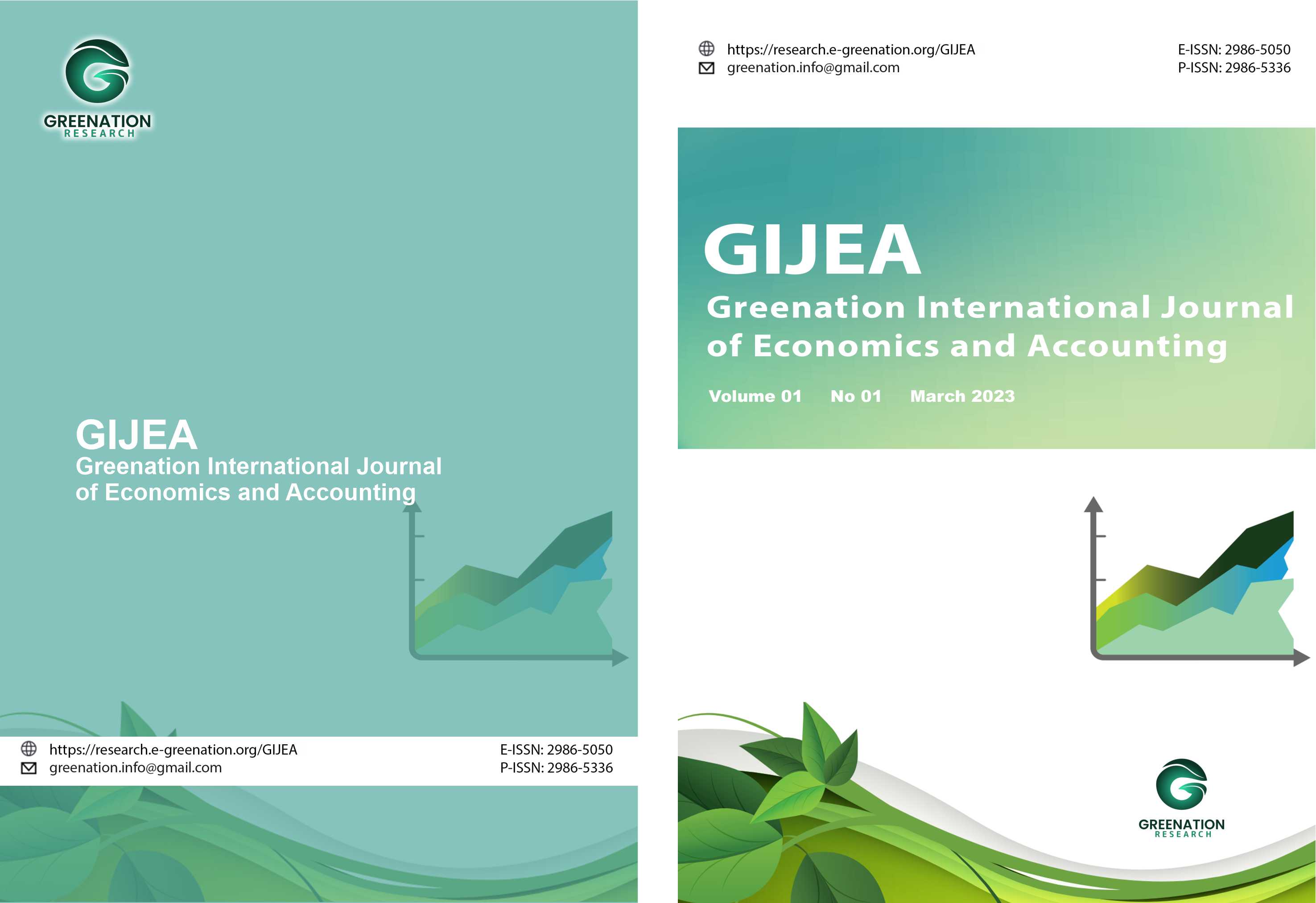The Influence of Financial Literacy, Fear of Missing Out (FoMO), and E-Wallet Use on Student Financial Behavior (A Case Study of Accounting Students from the 2021-2024 Cohort at Jambi University)
DOI:
https://doi.org/10.38035/gijea.v3i3.523Keywords:
Financial Literacy, FoMO, E-wallet, Financial Behavior, StudentsAbstract
This study aims to analyze the influence of financial literacy, the Fear of Missing Out (FoMO) phenomenon, and the use of e-wallets on the financial behavior of students. This study was conducted on students of the Accounting Study Program at the University of Jambi from the 2021–2024 batch. Background: The younger generation, especially students, has the potential to influence their consumption patterns and financial decision-making. A quantitative approach was used in this study with a survey method and questionnaire distribution to respondents who were determined through purposive sampling. The collected data were analyzed using multiple linear regression to test the influence of independent variables on dependent variables.
References
Ajzen, I. (1991). The Theory of Planned Behavior. Organizational Behavior and Human Decision Processes. 50, 179 211 https://doi.org/10.1080/ 10410236.2018.1493416
Hakim, S. H., Rahman, A., & M.Syafii. (2023). Analysis of Factors Affecting Poverty in North Sumatra. Owner?: Research & Accounting Journal, 3(3), 677–697. https://doi.org/10.36987/jumsi.v3i3.4205
Herawati, N. T., Candiasa, I. M., Yadnyana, I. K., & Suharsono, N. (2018). The Influence of Financial Learning Quality and Financial Literacy on the Financial Self-Efficacy of Accounting Students. JPEKA: Journal of Economics, Management, and Finance Education, 2 (2
Khodizah, & Hidayati, F. (2025). The Influence of Financial Literacy, Income, Lifestyle, and E-Wallet Use on the Financial Behavior of Generation Z in Pekanbaru City. 04(01).
Msarofah, M. U., & Fauzan. (2023). Faculty of Economics and Business, Surakarta Muhammadiyah University The Influence of Financial Literacy and Lifestyle on the Financial Behavior of Students in the Faculty of Economics and Business, Surakarta Muhammadiyah University. 4(6), 8422–8433.
Novriyanti, R. (2022). The Influence of E-Wallet Usage, Financial Literacy, Financial Experience, and Financial Attitude on Financial Behavior. Thesis.
Przybylski, A. K., Murayama, K., DeHaan, C. R., & Gladwell, V. (2013). Motivational, emotional, and behavioral correlates of fear of missing out. Computers in human behavior, 29(4), 1841-1848.
Rizki, E. O. (2022). The Influence of Financial Literacy and Lifestyle on Financial Management of Students in the Management and Accounting Study Program, Faculty of Economics and Business, University of Jambi. University of Jambi Library, https://repository.unja.ac.id/id/eprint/36471, 111.
Robb, C. A., & Woodyard, A. S. (2011). Financial knowledge and best practice behavior. Journal of Financial Counseling and Planning, 22(1), 60–70.
Wafa, N. S. (2025). The Influence of Financial Literacy and E-Wallet Use on the Financial Behavior of Students in Tasikmalaya City Nazia Sariul Wafa. Masman: Master of Management, 3, 260–266.
Widiantari, K. S., Mahadewi, I. A. G. D. F., Suidarma, I. M., & Arlita, I. G. A. D. (2023). The Influence of Financial Literacy, E-Money, and Lifestyle on the Financial Behavior of Generation Z in a Cashless Society. MEA Scientific Journal (Management, Economics, and Accounting), 7(3), 429–447.
Wijayanto, J., Todingbua, M. A., & Jaya, A. (2025). The Effect of Fear Of Missing Out and Financial Literacy on Student Financial Behavior. PRIMANOMICS: Journal of Economics and Business, 2, 1–10.
Wiwik, V., & Syahrudin, H. (2023). The Influence of Financial Literacy on the Use of E-Wallets and Its Impact on the Financial Behavior of Economics Education Students at FKIP Untan Pontianak Introduction. Sinestesia Journal, 13(2), 1374–1381.
Woroms, P. D. L., Amtiran, P. Y., Makatita, R. F., & Foenay, C. C. (2024). Analysis of Financial Behavior in the Use of Electronic Wallets (E-Wallets) Among Students of the Faculty of Economics and Business at Nusa Cendana University. Glory: Journal of Economics and Social Sciences, 5 (1
Yulianto, M. D., Anggraeni, M. D., Alviasari, A., Wicaksono, M. A., Maya, M., Amelia, R., & Rozak, R. W. A. (2024). The Influence of Fear of Missing Out (FoMO) on Social Media on the Financial Health of Generation Z. JUBIKIN: Journal of Creative and Innovative Business, 2(2).
Downloads
Published
How to Cite
Issue
Section
License
Copyright (c) 2025 Rahmadina, Muhkzarudfa, Muhammad Gowon

This work is licensed under a Creative Commons Attribution 4.0 International License.
Copyright :
Authors who publish their manuscripts in this journal agree to the following conditions:
- Copyright in each article belongs to the author.
- The author acknowledges that the GIJEA has the right to be the first to publish under a Creative Commons Attribution 4.0 International license (Attribution 4.0 International CC BY 4.0).
- Authors can submit articles separately, arrange the non-exclusive distribution of manuscripts that have been published in this journal to other versions (for example, sent to the author's institutional repository, publication in a book, etc.), by acknowledging that the manuscript has been published for the first time at GIJEA.
























